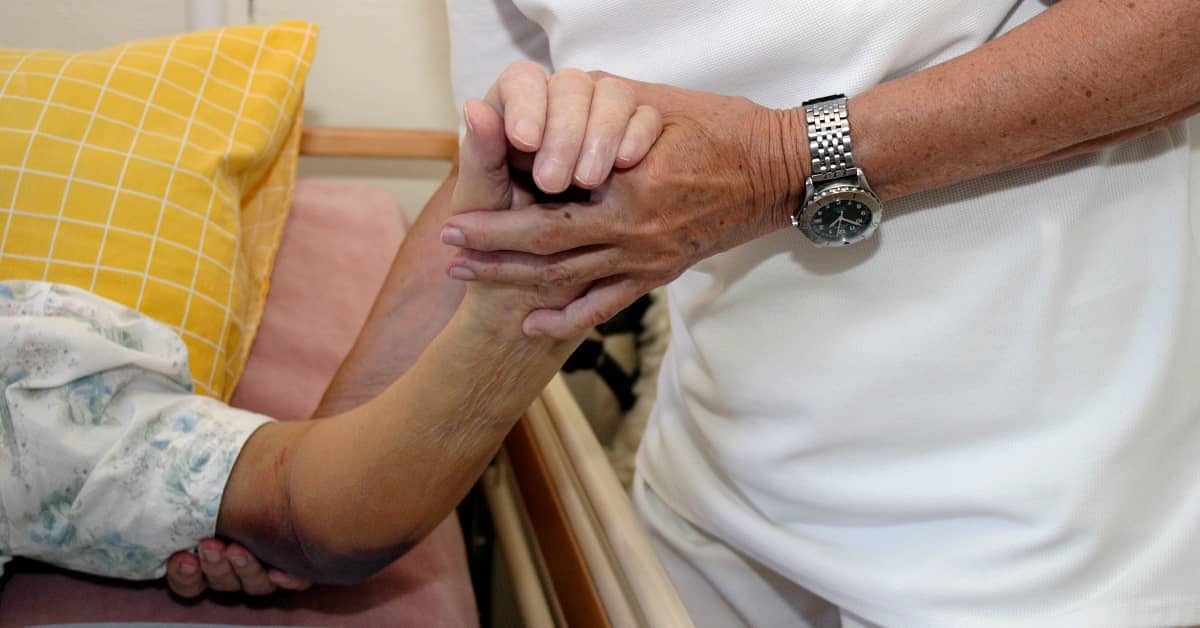
Can You Sue a Nursing Home for Bed Sores?
Bed sores are one of the most common signs of potential neglect or abuse in nursing homes. Also called pressure sores or decubitus ulcers, bed sores form over time as a result of uninterrupted contact between the skin and another surface.
Seniors with mobility issues (such as those who can’t get out of bed, can’t turn over on their own, use a wheelchair, etc.) have an increased risk of developing bed sores. Nursing home staff have a duty to prevent bed sores and monitor residents for ulcerations of the skin.
When nursing homes fail in this duty, the results can be catastrophic. If your loved one suffered serious injury, infection, or other adverse effects from negligence in a long-term care facility, a New Jersey nursing home abuse attorney can discuss your options for filing a claim.
What Causes Bed Sores?
Bed sores form when the skin is subjected to constant pressure for a lengthy period of time. If the pressure is not relieved, blood flow to the area is reduced. In as little as a few hours, this can damage skin and other tissues.
Able-bodied people are able to relieve pressure on the skin by changing positions when they are sitting or lying down. We do it consciously throughout the day, as well as automatically multiple times a night when we are asleep.
However, those with physical impairments may lack the ability to shift the position of their bodies. If these vulnerable individuals do not get assistance, they are at risk of getting bed sores.
Where Do Bed Sores Appear?
Bed sores can develop on any part of the body where prolonged physical contact between the skin and another surface occurs. The areas of the body most vulnerable to bed sores are:
- The hips, buttocks, and tailbone
- The elbows
- The backs of the knees
- Along the spine
- The ankles
- The heels of the foot
- The ears and side of the head
- The back of the head
Ultimately, the location of bed sores will depend on the position in which the patient is left. A person in a wheelchair is at risk at multiple points along the back of the body (including the torso, waist, and limbs), whereas someone confined to a bed could have bed sores form on the back and/or the sides of the body.
How Are Bed Sores Classified?
Although bed sores initially develop on the outermost layer of skin, lack of relief and medical attention can result in more widespread damage to deeper tissues of the body. The severity of a bed sore is graded as follows:
- Stage 1: The earliest and least serious stage of a bed sore. The skin may appear red and irritated, accompanied by an itching or burning sensation.
- Stage 2: These pressure ulcers are open wounds that penetrate the internal layers of the skin. The sore may take on the appearance of a “weepy” blister that leaks clear liquid.
- Stage 3: Damage extends to the layer of fat beneath the skin. Infection may be apparent.
- Stage 4: Damage may extend to underlying muscles, tendons, ligaments, and even bones. Necrosis (cell death) may be present in the layers of skin and other tissues.
Bed sores are extremely painful. In later stages, they also put patients at risk for sepsis and other life-threatening conditions.
When Are Nursing Homes Liable for Bed Sores?
In the majority of cases, bed sores are preventable with proper care. Nursing homes have the following responsibilities in caring for residents who are physically disabled, insensible to pain and other stimuli, or unconscious:
- Adjusting the resident’s position in bed, when sitting, and/or in a wheelchair
- Ensuring residents are adequately hydrated and fed properly; malnutrition and dehydration makes the skin thinner and more susceptible to injury
- Assisting residents who are incontinent with bathing and changing clothes and bedding
- Monitoring vulnerable residents for signs of bed sores and other damage to the skin
- Changing bandages and providing other care in the event that residents do develop bed sores
Negligence in any of these aspects of nursing home care can lead to the formation of a bed sore, or result in a bed sore getting worse. If this is the case, the resident and his or her family may be able to bring a claim against the nursing home.
How Do I Sue a Nursing Home for Bed Sores?
Proof of negligence is essential for the success of a nursing home abuse claim. An attorney can investigate on your family’s behalf and collect evidence such as:
- Photos of unsanitary conditions in the nursing home
- Witness statements concerning neglect or abuse on the part of nursing home staff
- Complete medical records documenting the severity of the bed sore and its effects
- Expert testimony on how the bed sore developed and how negligence on the part of the nursing home contributed to the injury
A nursing home abuse attorney can also calculate all of the damages to which you and your family may be entitled. Severe bed sores require extensive medical attention, and they may result in long-term complications.
The costs associated with these issues add up. If the nursing home is responsible for harming your loved one, you and your family should not have to bear these burdens alone.
Contact a New Jersey Nursing Home Abuse Attorney Today
Despite the terrible toll they take on the health and well-being of our seniors, bed sores are tragically commonplace in nursing homes. Although in some cases they are caught in the early stages by diligent staff and treated successfully, many other cases end in enormous pain, severe illness, and even death.
At Maggiano, DiGirolamo & Lizzi, our attorneys are committed to pursuing justice on behalf of the elderly and their families. Our firm has the knowledge, experience, and resources to investigate nursing home abuse and neglect and seek the full compensation you and your loved ones deserve.
Please call Maggiano, DiGirolamo & Lizzi at (201) 585-9111 today for a free case review. Our nursing home abuse attorneys serve clients in Fort Lee and throughout New Jersey, as well as clients in New York.

















